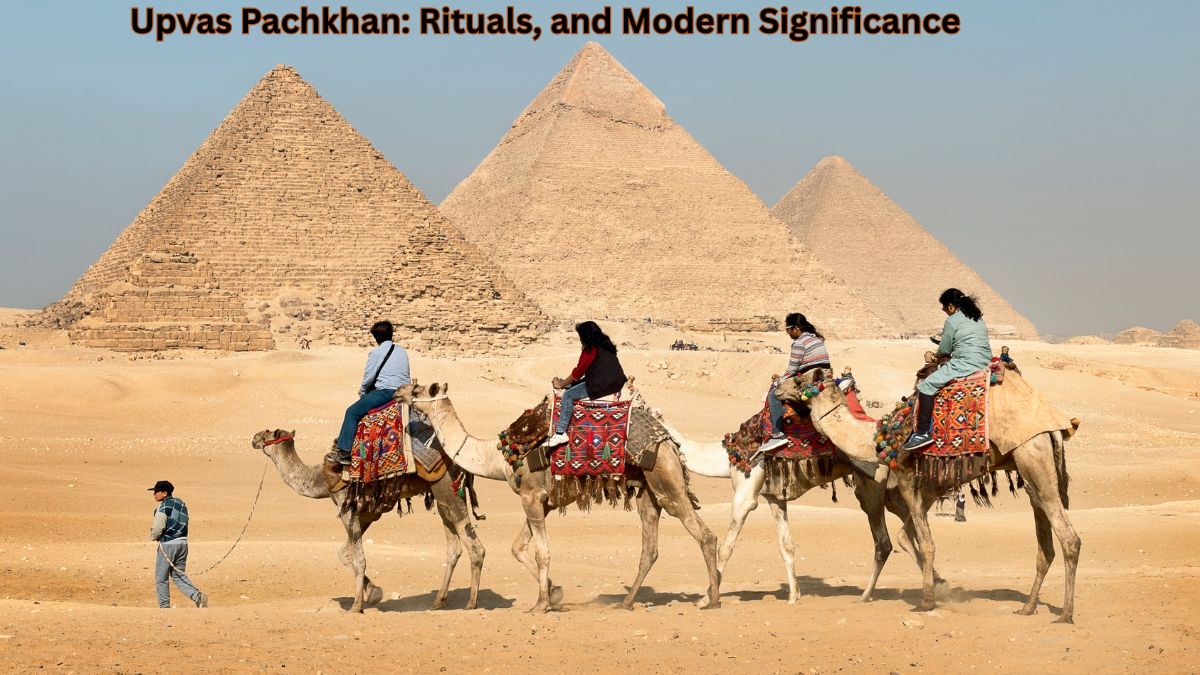For anyone searching the phrase “Upvas Pachkhan”, the immediate intent is usually to understand what it means in the context of Jain practice. In simple terms, Upvas Pachkhan refers to the ritual vow or resolution taken before observing an Upvas, or fast, in Jainism. It is a spiritual declaration made consciously, often in the presence of a spiritual guide or in one’s personal prayer, affirming the commitment to fast with discipline, purity, and devotion. Far beyond a mechanical ritual, Pachkhan represents mindfulness—an inward acknowledgment of both the intention and the limits of the fast.
This article explores the historical background, philosophical depth, procedural details, cultural adaptations, and contemporary relevance of Upvas Pachkhan. To provide readers with an engaging and structured understanding, we will analyze not only the practice but also its impact on personal health, spiritual discipline, and community life.
The Concept of Upvas in Jainism
The word Upvas comes from two Sanskrit roots: upa (near) and vas (to dwell). Together, it means “to dwell near” the soul or truth. In Jainism, Upvas is not simply abstaining from food but a conscious movement closer to spiritual purity.
Fasting serves as a way to:
- Reduce attachment to the physical body.
- Strengthen discipline over desires.
- Purify the mind through restraint.
- Redirect energy toward prayer and meditation.
There are many types of Upvas, ranging from complete abstinence to partial dietary restrictions. The form chosen depends on the devotee’s capacity, health, and spiritual intent.
What Is Pachkhan?
Pachkhan is the vow, or sankalp, taken before engaging in religious observances. It functions as a framework, defining what is permitted and what is renounced during the chosen fast.
For example, one may take Pachkhan for:
- Upvas (complete fast, no food or water for a defined period).
- Ekasan (one meal in a day, eaten at a specific time).
- Biyasan (two meals a day with restrictions).
- Ayambil (simple food, boiled and without spices or indulgence).
Without Pachkhan, a fast in Jain practice is considered incomplete because the vow aligns the act with spiritual discipline rather than mere physical abstinence.
The Ritual of Upvas Pachkhan
Upvas Pachkhan is performed at the start of the day, typically during pratahkal (early morning), before sunrise or shortly after. The devotee either recites the Pachkhan mantra themselves or receives it from an elder, monk, or learned person.
The process generally involves:
- Purification: Bathing and preparing the body with cleanliness.
- Prayer: Offering respect to the Tirthankaras, saints, and the supreme soul.
- Declaration: Stating clearly the type of fast and the intention behind it.
- Commitment: Acknowledging what one will avoid—such as eating after sunset, consuming certain foods, or indulging in distractions.
- Mindful Practice: Carrying the vow throughout the day with awareness.
Table: Different Types of Pachkhan in Jain Practice
| Type of Pachkhan | Description | Usual Purpose | Level of Difficulty |
|---|---|---|---|
| Upvas Pachkhan | Complete fast, no food (sometimes no water) | Purification, spiritual closeness | High |
| Ekasan Pachkhan | One meal in a day, eaten at defined time | Discipline, self-control | Moderate |
| Biyasan Pachkhan | Two meals in a day, simple diet | Routine discipline | Low |
| Ayambil Pachkhan | Plain boiled food, no spices or taste indulgence | Austerity, detachment | Moderate-High |
| Shanti Pachkhan | Short vows for peaceful conduct | Daily mindfulness | Very Low |
Spiritual Significance
In Jain philosophy, every ritual has layers of meaning. Upvas Pachkhan is significant because it:
- Transforms intention into action: Declaring the vow prevents fasting from being a casual act.
- Promotes mindfulness: By consciously remembering the vow, the devotee practices vigilance against temptation.
- Strengthens inner discipline: Pachkhan reinforces the principle of samyak charitra (right conduct).
- Connects community: Public declaration often inspires collective observance and shared spiritual energy.
Health and Psychological Dimensions
While rooted in spirituality, Pachkhan also has implications for health and psychology.
- Physical health: Controlled fasting, when done appropriately, helps detoxify the body, improve digestion, and regulate metabolism.
- Mental clarity: The act of restraint frees the mind from the clutter of constant consumption.
- Emotional resilience: Pachkhan builds willpower, enhancing the ability to withstand desires.
- Mind-body balance: The discipline of vow-taking aligns mental commitment with bodily practice, reducing stress.
Modern Adaptations of Upvas Pachkhan
In today’s world, where daily routines are fast-paced, Pachkhan has adapted:
- Digital Pachkhan: Some communities provide apps and online recitations for devotees unable to attend temples.
- Partial Upvas: Urban practitioners may choose modified fasts that fit health conditions while preserving spiritual intent.
- Awareness focus: Instead of ritual alone, some emphasize mindfulness in work and relationships as part of their Pachkhan.
Cultural Role
In Jain families, Pachkhan is often taught early. Children learn simplified forms, such as avoiding sweets for a day. During festivals like Paryushan, Pachkhan becomes central, uniting communities in collective discipline.
In diaspora communities worldwide, Pachkhan ceremonies are broadcast online, bridging physical distance and sustaining cultural ties.
Comparing Upvas Pachkhan to Other Traditions
While unique to Jainism, Pachkhan resembles practices in other traditions:
- Hindu Sankalp: Vows taken before puja or vrata.
- Islamic Niyyah in Ramadan: Intention set before fasting each day.
- Christian Lent: Commitment to abstain from certain foods or habits.
- Buddhist Uposatha: Days of purification and renewed vows.
This comparison highlights the universal human impulse to transform intention into disciplined action.
Misconceptions About Pachkhan
- It is only about food: In truth, Pachkhan is about mental discipline, not just dietary rules.
- It is mandatory for all Jains daily: While encouraged, its practice depends on capacity and intent.
- It weakens the body: When done responsibly, fasting with Pachkhan supports balance rather than harm.
- It is outdated: In reality, its mindfulness value is more relevant in modern distractions.
Pachkhan and Ethical Living
Pachkhan is not limited to fasting. It is also applied to daily ethical decisions, such as:
- Avoiding violence in speech.
- Restricting consumption to what is necessary.
- Observing truthfulness.
- Practicing non-attachment to material comfort.
This extension of Pachkhan shows its role in shaping a lifestyle aligned with Jain values.
The Psychological Depth of Taking a Vow
Modern psychology confirms that publicly declaring a vow increases accountability. Pachkhan functions in the same way: the clarity of a stated commitment strengthens willpower and reduces chances of breaking the fast.
Neuroscience also suggests that intention-setting activates goal-oriented brain pathways. Thus, Pachkhan’s ancient wisdom aligns with contemporary science.
Pachkhan in Festivals
During Jain festivals like Paryushan and Das Lakshan Parva, Pachkhan is elevated. Devotees take multiple types of vows, from fasting to silence. The communal energy amplifies the sense of purpose, reinforcing that Pachkhan is as much about community as it is about the individual.
Table: Upvas Pachkhan in Contemporary Settings
| Context | Traditional Practice | Modern Adaptation |
|---|---|---|
| Daily Ritual | Morning Pachkhan recitation | Mobile apps, online sessions |
| Community Festivals | Collective Upvas Pachkhan | Hybrid events, global streaming |
| Youth Participation | Simplified fasts taught by elders | Digital guides, interactive workshops |
| Health Integration | Spiritual fasting with discipline | Adjusted Pachkhan for medical needs |
Lessons for Modern Life
Even outside Jain communities, Pachkhan teaches universal lessons:
- Discipline begins with intention.
- Mindful declarations guide behavior.
- Restraint enhances freedom.
- Spiritual practices adapt with time but remain rooted in principle.
Conclusio
The practice of Upvas Pachkhan embodies the essence of Jain discipline: conscious choice, spiritual closeness, and ethical living. It is more than fasting; it is a vow that reshapes how one relates to food, desire, and ultimately, the self. In a distracted modern age, its relevance may be greater than ever, reminding us that clarity of intention can transform the simplest act—like skipping a meal—into a profound spiritual journey.
FAQ
1. What does Upvas Pachkhan mean?
It is the vow taken before fasting in Jainism, aligning the act with spiritual discipline and mindfulness.
2. Is Pachkhan necessary for every Upvas?
Yes, Pachkhan formalizes the fast, making it spiritually valid rather than casual abstinence.
3. Can Pachkhan be done at home without a temple?
Yes, devotees may recite Pachkhan at home, though many prefer guidance from monks or elders.
4. Does Pachkhan only relate to food?
No, Pachkhan extends to ethical conduct, such as avoiding harmful speech or material indulgence.
5. How is Pachkhan relevant today?
It fosters discipline, mindfulness, and ethical living—values that are highly relevant in modern, busy lifestyles.











